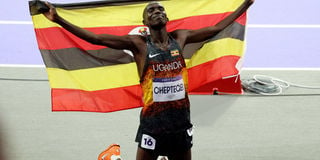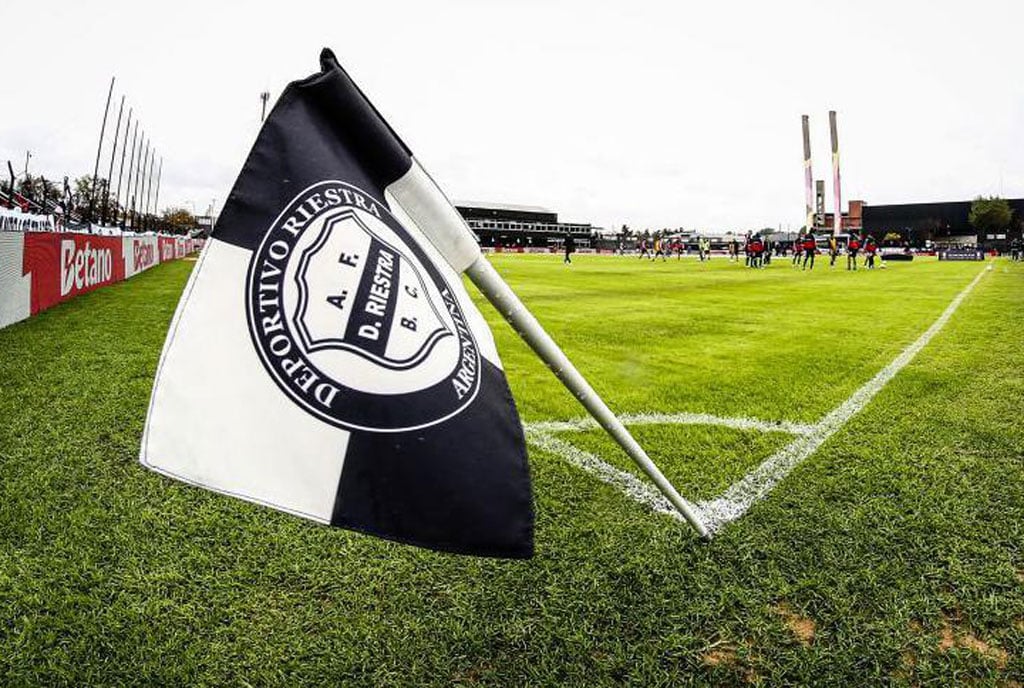Prime
From Oregon to Paris: Cheptegei stays ahead of park

Cheptegei has now completed 'Career Slam' by winning the only medal that was missing. PHOTOS/REUTRES
What you need to know:
On September 2, 1972, John Akii-Bua needed to overcome a very difficult lane 1 to win the 400m hurdles final with then a world record of 47.82 seconds for Uganda’s first-ever Olympic gold medal.
PARIS, FRANCE. Uganda’s success stories are never easy. President Yoweri Museveni needed a five-year bush war to claim the country’s highest office in 1986.
On September 2, 1972, John Akii-Bua needed to overcome a very difficult lane 1 to win the 400m hurdles final with then a world record of 47.82 seconds for Uganda’s first-ever Olympic gold medal.
Uganda’s victories do not come easy. The sweet chapters are painful to write and so is Joshua Cheptegei’s.
He on Friday night etched his name further in the history books as the country’s greatest of all time (G.O.A.T) after he superseded a bulk of barriers to clinch the men’s 10000-metre gold medal inside the Stade de France at the Paris 2024 Olympics.
“I can’t describe the feeling,” said Cheptegei moments after the stadium had emptied. It was a special night as Uganda pocketed its 12th medal in Olympics history.
Six of those medals have come inside a period of 12 years. Cheptegei became the first Ugandan to ever medal thrice at these Games.
The 27-year-old added to his 10000m silver and 5000m gold medals won at the Tokyo 2020 Games in Japan three years ago.
In Tokyo, Cheptegei did not manage the humid conditions well and when the rest of the field ran a race banking on his decisions, it turned out relatively slow.
Seven men inevitably had a chance to kick at the bell and by the time Cheptegei charged well, Ethiopian Selemon Barega had won the gold medal on July 30, 2021.
Cheptegei got a silver medal while Jacob Kiplimo got the bronze medal after that 25-lap final. But perhaps, no Ugandan athlete has faced significant levels of pressure but turned out to deliver, like Cheptegei.
He withstood a three-year wait to finally win his most desired piece of silverware. “It’s really amazing, this one was still missing. Three times world champion, now I can add the Olympic title to this,” Cheptegei stated.

There is every reason for Cheptegei to give a thumbs up.
“This one is for my family. Success is not only for me but for my family, my coach, my management. The whole team around me. I couldn’t have done it without them.”
By beating the Ethiopian trio of Berihu Aregawi, Barega and Yomif Kejelcha after a really tactical battle on the light purple track in Paris, Cheptegei had collected the only track medal missing in his cabinet.
“Really, I thank God that I was healthy in training, well prepared and I knew that once I had the front, nobody was going to beat me,” said Cheptegei.
“For me, for my country, it’s amazing for the fans around the world. For the young people who are aspiring to become future champions, this is the best impression for them, especially the most challenging times that I was not able to win the most races during the season.
“You can still achieve your dream. You must not sit back and say that you are grounded. You have to be grateful, focus on yourself and believe in your God,” he added.
And Cheptegei feels he is now at liberty to switch focus to marathon running after collecting 12 individual medals at the major championships on track and road over the past decade.
It has been a long journey for Cheptegei broke out as a 17-year-old when he beat 37 other competitors for the 10000m gold medal at the Hayward Field in Eugene, Oregon during the 2014 World Junior Athletics Championships.
He was spotted by his manager Jurrie van der Velden from the Netherlands under the Global Sports Communication (GSC) company. This happened about two years after Stephen Kiprotich had won the marathon title at the London 2012 Olympics in England.
Kiprotich and the late Benjamin Kiplagat, a 3000m steeplechase runner, were the first athletes that Jurrie worked with in Uganda.

Cheptegei is now the 10000m Olympic champion.
After Eugene, Jurrie spotted something special in Cheptegei. At the Rio 2016 Olympics, Cheptegei was potent material when he made sixth and eighth place finishes over the 10000m and 5000m finals in Brazil.
GSC decided to bring him a full-time coach in Addy Ruiter and a camp was set-up in Kapchorwa. That’s akin to a similar program that was already running in Kenya and Ethiopia.
“We noticed Joshua already had endurance in the body. We only needed speed to make him a world beater,” Jurrie said then. Since then, Cheptegei’s name has never left the lips of the global athletics lovers.
In 2017, Cheptegei had a chance to announce himself to the world stage on home soil but he miscalculated his race and went too fast, losing the lead to finish a distant 30th during the World Cross-country Championships in Kololo.
He was mocked on social media by Ugandans but months later, Cheptegei grabbed the silver medal behind Great Britain’s Mo Farah during the London World Championships in England.
In early 2018, Cheptegei won his first world titles; the 5000m and 10000m gold medals ahead of Canadian Mohammed Ahmed during the Commonwealth Games on the Gold Coast in Australia.
And that was enough to catapult his confidence. Cheptegei buried the ghosts of Kololo by landing the senior men’s world cross-country title in Aarhus, Denmark in 2019
He went on to win the 10000m title at the Doha World Athletics Championships, a 5000m Diamond League trophy and wrap up that year with the 10km world record (WR) mark in Valencia, Spain.
The Covid-19 pandemic in 2020 saw his plans distracted but he broke his idol Ethiopian Kenenisa Bekele’s 5000m and 10000m WR marks too.
Since the miscalculations in Tokyo, Cheptegei has had to face very difficult questions. But he smartly answered them to retain his world 10000m title at both the Oregon 2022 and Budapest 2023 editions of the World Championships.
He had a marathon debut in Valencia last December but after he terribly withered to finish 37th, the pressure was back. Cheptegei’s return to track saw him live in the shadows of the Ethiopian rivalry all year, especially ninth place in the 5000m race during the Bislett Games in Oslo, Norway on May 30.

Cheptegei rings the bell after winning Olympic Gold.
He even faced tougher questions during the race from the Ethiopian trio of Barega, Yomif Kejelcha and eventually silver medallist Berihu Aregawi but, a superb execution had Cheptegei home and got his legacy sealed.
“For Paris, we knew it was going to be very difficult because of the season he had had,” stated Jurrie. “But he eventually did it,” he added.
Cheptegei’s story is akin to the redefinition of the US action-thriller movie Jason Bourne portrayed by Matt Damon from the Bourne Identity, Supremacy, and Ultimatum and to the Bourne Legacy.
MEN’S 10000M FINAL RESULT
1 Joshua Cheptegei (UGA) 26:43.14
2 Berihu Aregawi (ETH) 26:43.44
3 Grant Fisher (USA) 26:43.46
4 Mohammed Ahmed (CAN) 26:43.79
5 Benard Kibet (KEN) 26:43.98
6 Yomif Kejelcha (ETH) 26:44.02
7 Selemon Barega (ETH) 26:44.48
8 Jacob Kiplimo (UGA) 26:46.39
22 Martin Kiprotich (UGA) 28:20.72
UGANDA’S MEDALS AT OLYMPICS
1968 Mexico City: Eridadi Mukwanga (Bantamweight Silver)
1968 Mexico City: Leo Rwabwogo (Flyweight Bronze)
1972 Munich: John Akii-Bua (400m Hurdles Gold)
1972 Munich: Leo Rwabwogo (Flyweight Silver)
1980 Moscow: John Mugabi (Welterweight Silver)
1996 Atlanta: Davis Kamoga (400m Bronze)
2012 London: Stephen Kiprotich (Marathon Gold)
2020 Tokyo: Joshua Cheptegei (10000m Silver)
2020 Tokyo: Jacob Kiplimo (10000m Bronze)
2020 Tokyo: Peruth Chemutai (3000m Steeplechase Gold)
2020 Tokyo: Joshua Cheptegei (5000m Gold)
2024 Paris: Joshua Cheptegei (10000m Gold)




